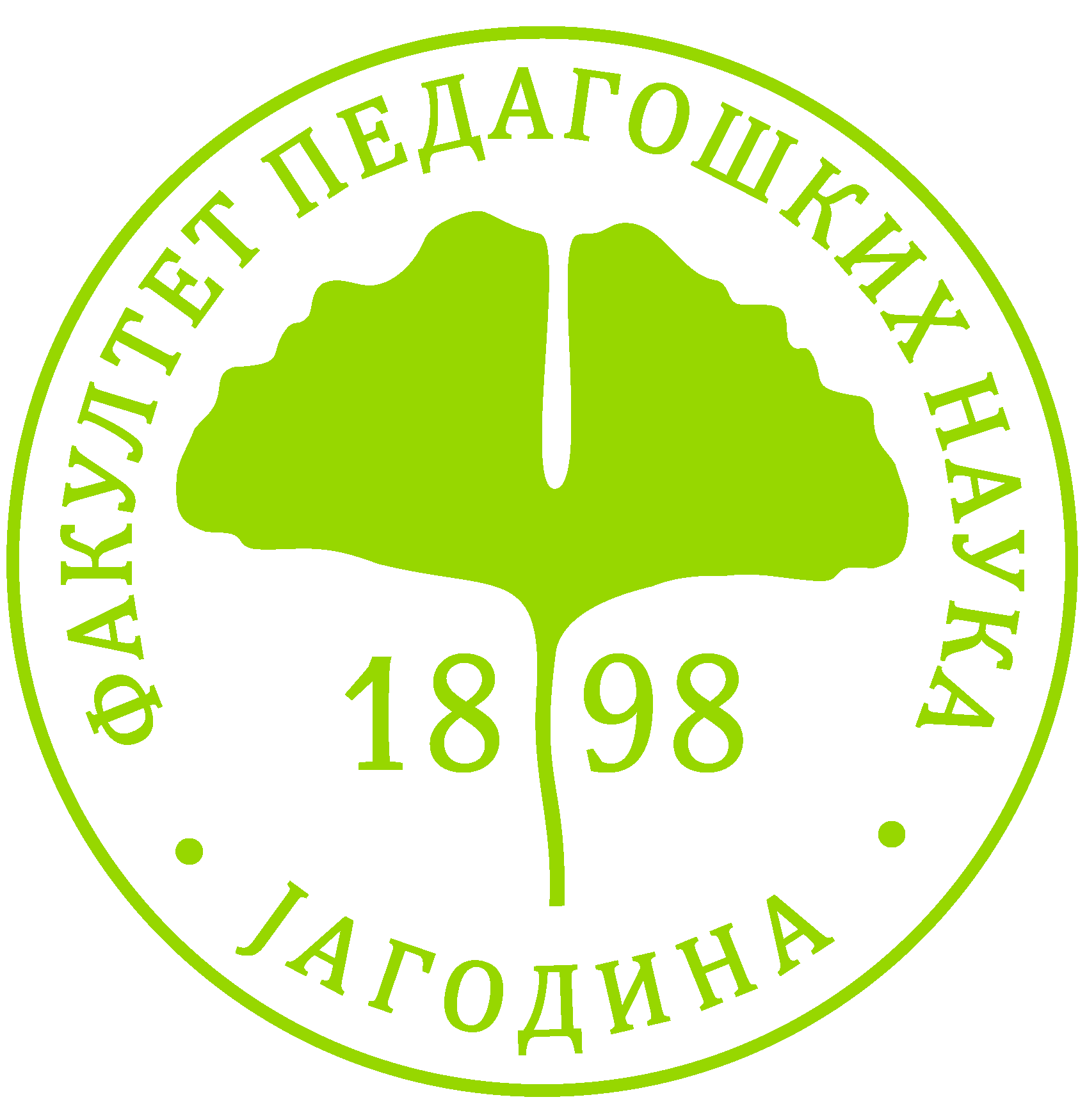Level of study programme: Undergraduate academic studies, first degree higher education
Duration: Eight semesters – four years
Study programme pre-requisites: Four-year secondary education, entrance examination. Preliminary testing of speech, musical and physical abilities (eliminatory).
Written entrance examination in mother tongue and literature, and general knowledge.
Mode of study programme delivery: Blended learning
Study program objectives and description of the program: The study program Preschool Teacher Education lasts eight semesters, i.e. four school years and equates 240 ECTS credits.
The program has all elements provided by the Law on Higher Education and standards for accreditation of study programs and levels of study. The type of study and the outcomes of the learning process are in line with the Law on the National Qualifications Framework of the Republic of Serbia. The main purpose of the program is the education of highly professional educational staff in the field of preschool education.
The study program qualifies successful graduates with scientific qualification in educational theory about childhood, learning and development of children at an early age and practice in order to perform professional work in the field of preschool education.
Students enroll in the first year of study after taking the entrance exam announced by the University of Kragujevac, and conducted publicly by the Faculty of Education in Jagodina. They are admitted based on secondary school achievements and the entrance exam results.
Successful graduates can continue their studies at the level of master’s academic studies.
The curriculum of the program contains 36 compulsory courses and 53 elective courses. Students can choose two elective courses in the first and third years, while in the second and fourth years they can choose three elective courses.
In each year of study, students have an internship. In the first year the internship lasts two weeks and equates 3 ECTS credits, while in the second, third and fourth year, the internship lasts 4 weeks with 6 ECTS credits.
Teaching includes lectures, exercises, consultations and mentoring. Special attention is given to individual work with students during consultations and mentoring. The visits of experts, which the Faculty periodically organizes within workshops and conferences contribute to the quality of teaching.
Courses
| 1. Serbian Language |
| 2. Elementary Mathematical Concepts |
| 3. English for Specific Purposes |
| 4. German for Specific Purposes |
| 5. Sociology |
| 6. Communication Science |
| 7. Developmental Psychology |
| 8. Introduction to Pedagogy |
| 9. Introduction to Literary Studies |
| 10. Performing Arts and Crafts |
| 11. Natural Sciences |
| 12. Physical Education and Elementary Games |
| 13. German Language |
| 14. Development of Children’s Motor Skills |
| 15. Rhetorical and Communication Skills |
| 16. Drawing and Painting |
| 17. Performing Skills 1 |
| 18. Software and Web Tools |
| 19. History of Culture and Art |
| 20. Integrated Practice 1 |
| 21. English for Academic Purposes |
| 22. German for Academic Purposes |
| 23. Children’s Literature |
| 24. Children’s Early Development and Learning |
| 25. Interaction and Communication in Eearly Childhood Education |
| 26. Preschool Pedagogy |
| 27. Methodology of Education 1 |
| 28. Informatics |
| 29. Methodology of Informatics |
| 30. Basics of Visual Art |
| 31. Music Education |
| 32. Quire1 |
| 33. Graphics |
| 34. Basics of Anthropomotorics |
| 35. Media Literacy |
| 36. Sociology of Education |
| 37. Performing Skills 2 |
| 38. Comprehension of Emotions |
| 39. Logic |
| 40. Digital Literacy |
| 41. Biological Basis of Human Behavior |
| 42. General Hygiene |
| 43. Integrated Practice 2 |
| 44. Methodology of Pedagogical Research |
| 45. Inclusive Education |
| 46. Ethics |
| 47. Methodology of Education 2 |
| 48. Methodology of Environmental Education |
| 49. Methodology of Developing Initial Mathematical Concepts |
| 50. Methodology of Teaching Music |
| 51. Methodology of Teaching Arts |
| 52. Methodology of Teaching Physical Education |
| 53. Performing Skills 3 |
| 54. Art Techniques |
| 55. Integrated Language Skills 1 (English – Level B2) |
| 56. Integrated Language Skills 1 (German – Level B2) |
| 57. Introduction to the History of Serbian Literature 1 |
| 58. Visual Presentation of Information and Data |
| 59. Methodology of Teaching Digital Literacy |
| 60. Quire 2 |
| 61. Form Theory |
| 62. Corrective Gymnastics |
| 63. Integrated Language Skills 1 (English – Level C1) |
| 64. Integrated Language Skills 1 (German – Level C1) |
| 65. Integrated Practice 3 |
| 66. Family Pedagogy |
| 67. Methodology Practicum of Speech Development |
| 68. Methodology Practicum of Environment |
| 69. Methodology Practicum of Development of Initial Mathematical Concepts |
| 70. Methodology Practicum of Music |
| 71. Methodology Practicum of Arts |
| 72. Methodology Practicum of Sport Education |
| 73. Analysis of the Work of Art |
| 74. Creating Didactic Materials |
| 75. Introduction to the History of Serbian Literature 2 |
| 76. Applied Arts |
| 77. Quire 3 |
| 78. Methodology of Teaching English to Young Learners |
| 79. Methodology of Teaching German to Young Learners |
| 80. Skiing Theory and Methodology |
| 81. Drama and Dramatization |
| 82. Ecology |
| 83. Quire 4 |
| 84. Methodology Practicum of Teaching English to Young Learners |
| 85. Methodology Practicum of Teaching German to Young Learners |
| 86. Swimming Theory and Methodology |
| 87. Organization of Cultural Activities |
| 88. Project Approach in Education |
| 89. Didactic Tools in the Development of Initial Mathematical Concepts |
| 90. Philosophy of Education |
| 91. Final Practice |
